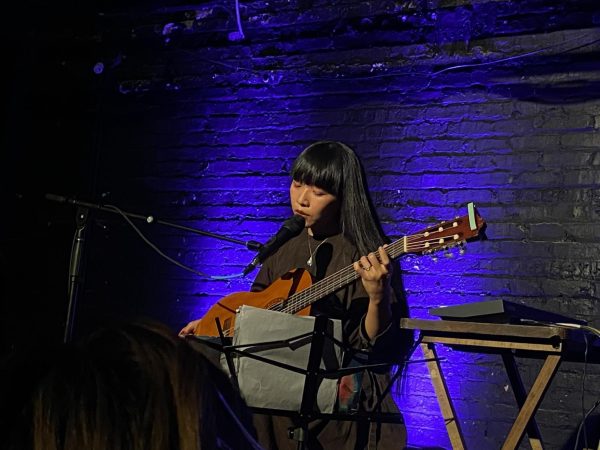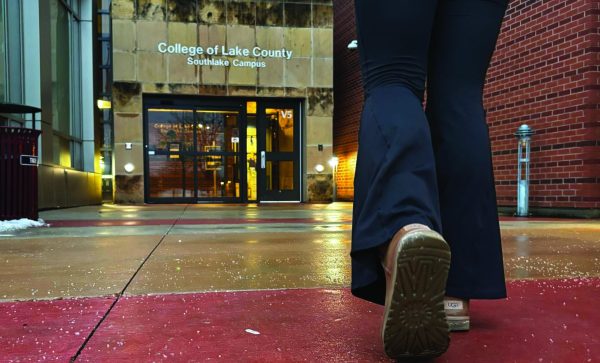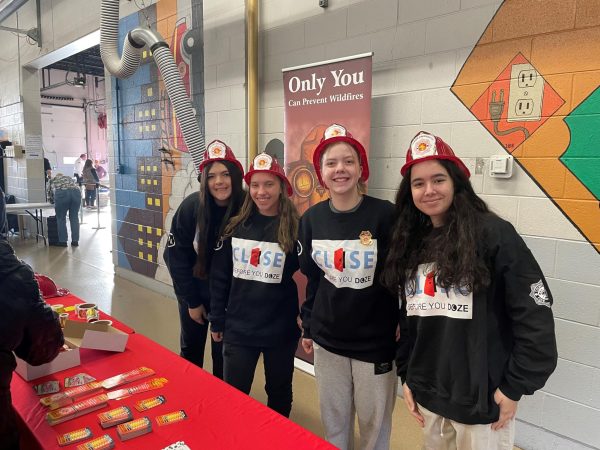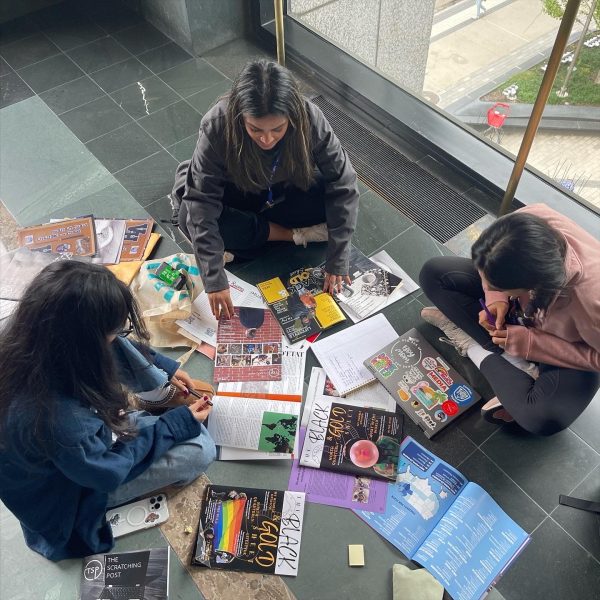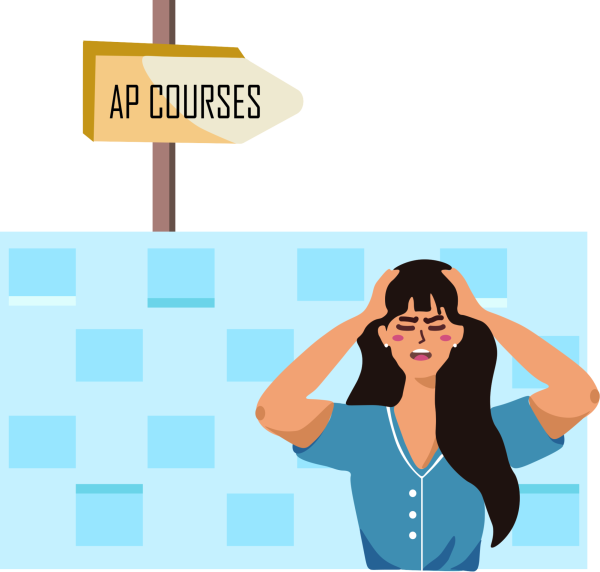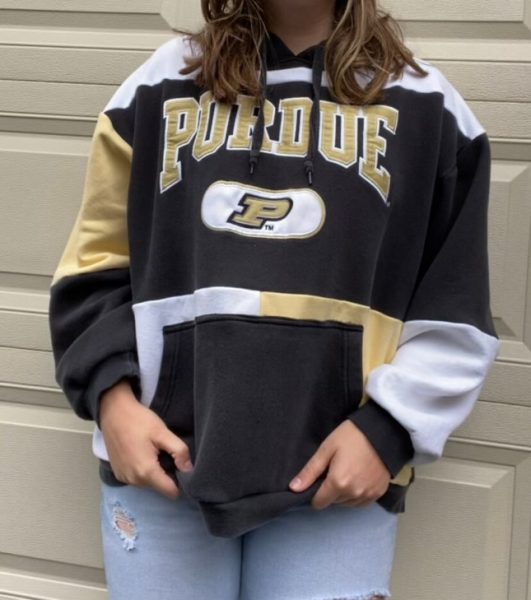“Aftersun” review: A nostalgia filled holiday
Before watching Aftersun, I never knew that so much can be said by saying so little. Director Charlotte Wells doesn’t hand you the plot on a silver platter. The plot isn’t posted up on a big flashing marquee. Rather, viewers have to read between the lines to unravel the brilliant masterpiece. Even after viewing the movie two times, I still find myself going back and analyzing specific scenes and trying to figure out the meaning behind them.
Aftersun follows an eleven-year-old girl, Sophie (Frankie Corio), on a holiday vacation to a Turkish resort with her father Calum (Paul Mescal), for his 31st birthday. It is clear that her parents are split apart and she doesn’t get to see her father that much. Throughout their vacation, Calum captures buoyant moments on his camcorder. The movie flashes forward intermittently to an adult Sophie looking back on her vacation with her father by viewing the old film. Wells includes a mix of moments captured from the video camera and moments that are just a fragment of Sophie’s memory that she is trying to piece together from her vacation with her father. Sophie’s father is missing from these jumps to the future, which begs the question, where is Sophie’s father?
Throughout the entire movie, my heart was beating and my tear ducts were ready to flow, as I was on the edge of my seat waiting for something bad to happen. The ominous non-diegetic music and building tension between Sophie and her father gave the movie an eerie feel. However, nothing bad really happened throughout the entire movie. The fact that there wasn’t some momentous climax that the whole movie was leading up to made it feel even more real. When watching Aftersun I didn’t feel like I was watching a movie, but rather innocent clips of footage from a father’s vacation with his little girl. This is because Wells includes scenes that seem insignificant to the plot of the whole movie.
There is one scene where it is late at night and Calum is standing on the balcony of the hotel room and carelessly swaying side to side as he smokes a cigarette. The camera is focused on Calum, but while it is panned to him you can hear the sound of heavy breathing. The camera then pans out to Sophie sleeping on the bed, the sound of her breathing is amplified, and it is completely dark, so you just see her shadow. This is a scene that wouldn’t typically be included in a movie because it seems so insignificant. As a viewer, I felt like a witness to the raw moments of a father-daughter relationship.
It becomes very clear throughout the movie that Calum is battling some type of pain that he is trying to overcome. This was apparent with the stack of tai chi books in the corner of the frame and the scenes of Paul Mescal doing tai chi in his hotel room, which I very much enjoyed. The cause of his pain is never explicitly stated which leaves viewers to come up with their own conclusion as to what demons Calum is battling.
As Sophie matures, she starts noticing the unsteadiness in her father’s mood. This hit home for me because as a child I always viewed my father as starkly strong. I distinctly remember the first time I ever saw him cry, and I was also on vacation. It was after we had found out our dog had died. I have felt what Sophie was feeling, seeing my father break down on vacation which was obviously supposed to be a blissful occasion. That image of my father crying remains engraved in my brain. When we are children, we don’t realize that our parents are experiencing life for the first time just as we are. It is hard for children to grasp the concept that our parents aren’t some perfect all-powerful beings who know the answer to everything, and they too, have emotions. The movie centers in on that point in Sophie’s life where she starts to see that her father has flaws. She sees that he is grappling with something, and he too has feelings of hopelessness.
Mescal and Corio perfectly captured an innocent father-daughter dynamic. This can be attributed to the fact that Corio and Mescal spent two weeks together before filming to forge an authentic father-daughter bond. I found the authenticity of their relationship impressive, especially considering that both Mescal and Corio are completely new to the film industry. I saw Sophie and Calum’s bond as a mirror to the bond I have with my own father. This was especially discernible with the attachment Mescal’s character has to his video camera. When I was a child, I went on vacations with my family all the time. Every single time my dad brought his bulky old-looking Sony Handycam and would film every trip. In the flashbacks, Sophie is her young, wild, and go-lucky self, putting on a show for the camera. However, in the flashforwards, you can see how adulthood has seized Sophie’s once cheerful self. I notice that same thing with myself every single time I watch my dad’s video footage from my childhood. It makes you think about how growing up affects a person’s mood. The whole entire movie wrings with nostalgia.
The thing I enjoyed the most about this movie was the multitude of scenes we get of Paul Mescal dancing. Sophie calls her father’s dancing embarrassing, but I would personally kill to see Paul Mescal dance to David Bowie’s “Under Pressure” in person. Aftersun is an emotionally bittersweet film that perfectly captures the dynamic relationship between a father ad a daughter all while triggering intense feelings of nostalgia. I would rate Aftersun 5/5 stars, but just know that after viewing it you will not be able to listen to the song “Under Pressure” without getting sad.


